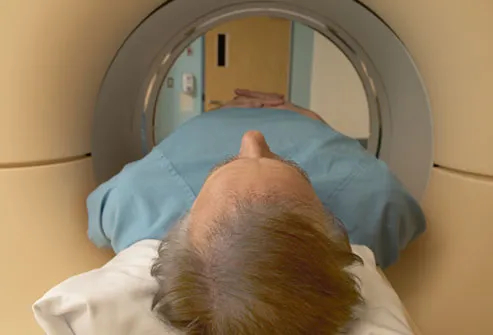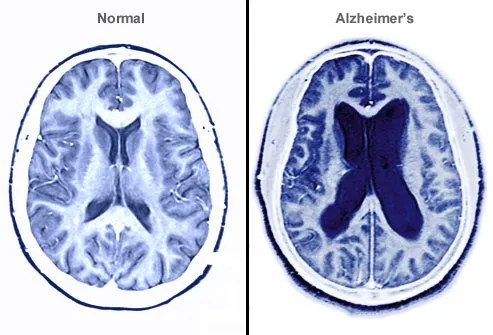How Alzheimer's Affects Daily Life
Because Alzheimer's affects concentration, patients may lose the ability to manage ordinary tasks like cooking or paying the bills. A study suggests difficulty balancing a checkbook is often one of the first effects of Alzheimer's. As the symptoms worsen, your loved one may not recognize familiar people or places. He or she may get lost easily, or use utensils improperly, such as combing hair with a fork. Incontinence, balance problems, and loss of language are common in the advanced stages.
Alzheimer's and Driving
Poor coordination, memory loss, and confusion make for a dangerous combination behind the wheel. If you feel your loved one should not be driving, explain why. If he or she won't listen, ask the doctor to step in. If the patient still insists on driving, contact the Department of Motor Vehicles for an assessment. Then make an alternate plan for your loved one's transportation needs.

Alzheimer's and Exercise
Exercise can help people with Alzheimer's maintain some muscle strength and coordination. It also improves mood and may reduce anxiety. Check with your loved one's doctor to learn which types of exercise are appropriate. Repetitive activities, such as walking, weeding, or even folding laundry may be the most effective at promoting a sense of calm.

Alzheimer's Medications
There is no cure for Alzheimer's disease, and no known way to slow the nerve damage within the brain. But there are a variety of medications that appear to help maintain mental function and slow the disease progression. If these treatments are given during the early stages of Alzheimer's, your loved one may be able to remain independent and carry out daily tasks for a longer period of time.

The Caregiver's Role
As the caregiver of someone with Alzheimer's, you will probably wear many hats -- cook, chauffeur, accountant. While you may have to handle the meal planning and finances, encourage the patient to do some activities independently. It may help to label cabinets with their contents and put up sticky notes with reminders of daily tasks. Be sure to buy a weekly pill box for medications.

Challenges in Caregiving
In the early stages of Alzheimer's, patients often understand what is happening and may be ashamed or anxious. Watch for signs of depression because this can often be managed with medication. In the more advanced stages, your loved one may become paranoid or violent and could even turn on you. Remember that the disease is responsible for this change. Alert the doctor about violent behavior promptly.

Sundown Syndrome
Some people with Alzheimer's become distressed when the sun goes down. This agitation tends to last through the evening and sometimes all through the night. The cause is not known, but there are some strategies to ease the tension. Keep the house well lit and close the drapes before sunset. Try distracting your loved one with a favorite activity or TV show. And restrict caffeine after breakfast.

When Your Loved One Doesn't Know You
Many people with Alzheimer's have trouble remembering names -- even those of close family members. A temporary fix is to put up pictures of friends and relatives with names printed underneath. Eventually, the patient may no longer recognize faces and may react to loved ones as if they are strangers. This can be a distressing time for family members, especially the primary caregiver.

Warning Signs of Caregiver Stress
Caring for someone with Alzheimer's can be physically and mentally taxing. Signs of caregiver stress include:
- Anger, sadness, and mood swings
- Headaches or back pain
- Difficulty concentrating
- Difficulty sleeping

Taking Care of the Caregiver
To avoid caregiver burnout, make sure you take at least a few minutes to do something you enjoy every day. Stay in touch with friends and keep up with hobbies whenever possible. Find a friend or relative to be your support person. You can also join an online or local caregiver support group through the Alzheimer's Association.

Essential Documents
While your loved one is still able to make important decisions, contact an attorney about drafting advance directives. These are legal documents that spell out the patient's preferences for medical treatments and end-of-life care. The patient should designate someone to make health care decisions and manage finances on his or her behalf. This can avoid confusion when your loved one is no longer able to state his or her wishes.

Home Health Care
Many patients express a desire to stay in their own homes as long as possible. Unfortunately, they may have trouble getting dressed or using the bathroom on their own as the disease advances. A home health aide can assist with personal hygiene and other daily tasks. You can also look into local services that deliver meals or provide transportation to the elderly. Most communities have an Area Agency on Aging that provides such services.

Assisted Living Facilities
There may come a day when your loved one can no longer be cared for at home. If he or she does not need 24-hour nursing care, an assisted-living facility may be an appropriate choice. ALFs provide housing, meals, and activities, but are much less expensive than nursing homes. Look for a facility with an Alzheimer's special care unit, which delivers 24-hour supervision and personal care to meet the needs of people with dementia.

End-Stage Alzheimer's
People with advanced Alzheimer's may lose the ability to walk, talk, or respond to others. Eventually, the disease can hinder vital functions, such as the ability to swallow. Patients in this stage may benefit from hospice care, which provides pain relief and comfort for the terminally ill.

Helping Children Cope
Children may feel confused, afraid, or even resentful when a family member is affected by Alzheimer's. Let the child know these feelings are normal and answer his or her questions about the illness honestly. Help the child celebrate happy memories of the patient -- for example, by creating a scrapbook.

Reducing Your Risk of Alzheimer's
If you're caring for a relative with Alzheimer's, you might be wondering if there's anything you can do to reduce your own risk. Research in this area is ongoing, but diet and exercise appear key. Studies indicate a lower risk among people who eat a Mediterranean diet rich in vegetables, fish, and nuts. Research also suggests those who are the most physically active are the least likely to get Alzheimer's.

http://www.webmd.com/alzheimers/guide/alzheimers-basics






















